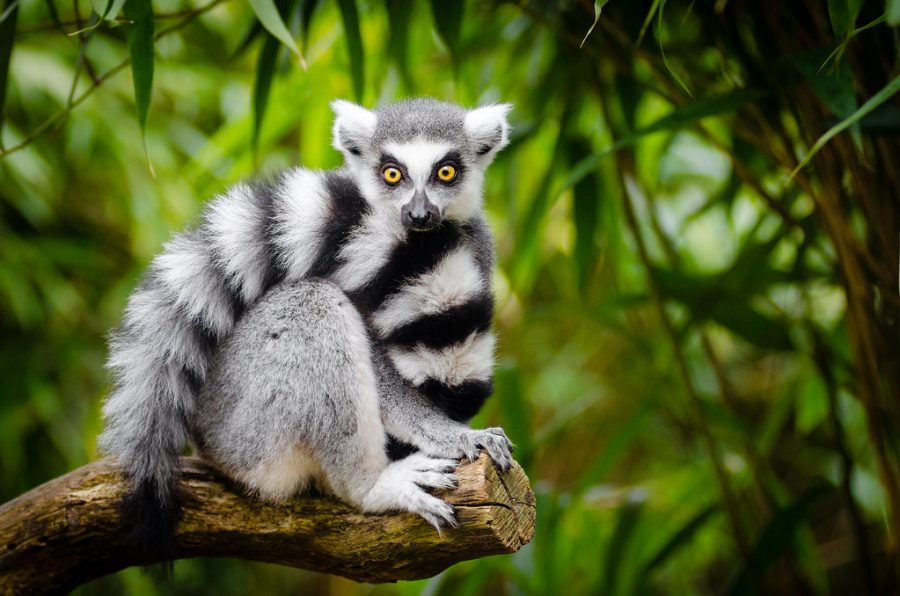Madagascar Lemurs and the Pandemic
March 17, 2021
What do you think of when you hear the word “Madagascar”? For most people, a lush, unoccupied island pops into their head, with a wide variety of lemurs that inhabit the country. Sadly, the idea of an island paradise filled to the brim with lemurs and trees will only remain a fantasy upon the silver screen. Lemurs have become even more endangered as a result of the Covid-19 pandemic.
Covid-19 has drastically affected countless countries, families, and individuals across the globe. However, the current widespread pandemic has also been threatening the Madagascar lemurs, many of which have been classified as Endangered on the IUCN Red List of Threatened Species™ as of July 9, 2020.
The virus is not directly spreading to the animals. Instead, it is affecting the people and economy of Madagascar which in turn jeopardizes the existence of lemurs in the country. According to an interview hosted by Dina Fine Maron, a writer from National Geographic, the executive director of Fanamby, Tiana Andriamanana, mentioned that “she’d grown used to seeing illegal burns for agricultural expansion”. Agricultural expansion is when anybody tears down any previous land to make room for agricultural land (farms, pastures, etc.). This can then lead to the owner making a profit due to whatever bounty they choose to produce. Agricultural expansion has caused massive habitat loss in Madagascar for years for the country’s native animals, that of which includes lemurs. Another researcher named Andrea L. Badin from The Revelator, mentions how lemurs use “habitat cover to survive”, thus causing a decline in the species. However, Andriamanana noticed that the burnings during 2020 have appeared earlier than in previous years. Due to the virus spreading through the country quickly, Madagascar went into lockdown, along with the rest of the world. Many of the country’s businesses, including ecotourism, momentarily stopped and didn’t create any profits. As a way to help themselves through the economic crash and the quarantine, a large portion of the nation’s citizens have resorted to illegally burning precious land.
Further, lack of ecotourism has exacerbated the Madagascar lemurs’ endangerment. While being one of the world’s most important biological hotspots, Mongabay mentions how “less than 10% of Madagascar’s primary forests remain today” due to agricultural expansion and deforestation. Several different countries use ecotourism to help preserve the wildlife in their region, Madagascar included. Ever since the pandemic hit, however, the world has gone into lockdown, and traveling was banned for the majority of 2020. Patricia Wright, an American primatologist, tells Mongabay that she created the Ranomafana National Park back in 1991 to help preserve the flora and fauna of this unique nation, that of which include the Jonah mouse lemur, the greater bamboo lemur, and other lemurs that are endemic only to Madagascar. Wright says that preserving the endemic lemurs is a battle worth fighting for and that they are one of the main reasons that she opened the park. Ecotourism, which is when tourists visit natural habitats without disturbing or damaging the area, has not only kept people knowledgeable about the lemurs and other wildlife native to the country but has also supported a number of businesses and people. Ranomafana had become one of the island’s most visited attractions since it was founded four decades ago. As the world went into lockdown, however, the tourists and the profits that came from ecotourism had vanished. In turn, the same people who had made money off of ecotourism turned to agricultural expansion as a way to provide for themselves and for their families, causing habitat loss that greatly affected the lemurs.
Sadly, the chances that lemur populations will make a comeback after the pandemic are low. For now, however, the best course of action to stop further endangerment of this wonderful species is to raise awareness about deforestation and its consequences.



